Latest Sheet Music
Muse

Muse are a British rock band formed in Teignmouth, Devon, United Kingdom in 1994 under the alias of Rocket Baby Dolls. The band comprises Matthew Bellamy (vocals, guitar and piano), Christopher Wolstenholme (bass guitar and backing vocals) and Dominic Howard (drums and percussion). Muse's style can be considered as a mixture of many musical genres, most notably alternative rock, classical music and electronica. Muse are known best for their energetic and visually dazzling live performances and on June 16th & 17th, 2007 became the first band to sell out the newly built Wembley Stadium in London. Muse have released four studio albums with their first, Showbiz, released in 1999, followed by Origin of Symmetry in 2001 and Absolution in 2003. The most recent, Black Holes & Revelations (2006), was also the most critically acclaimed, garnering the band a Mercury Prize nomination and a third place finish in the NME Albums of the Year list for 2006. Muse have won various awards throughout their career including 5 MTV Europe Music Awards, 5 Q Awards, 4 NME Awards and 2 Brit awards.
Dario Marianelli
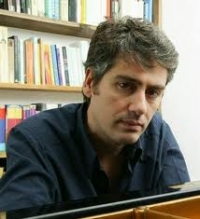
Dario Marianelli (born June 21, 1963 in Pisa, Italy) is a composer of piano, orchestral, and film music. He has composed the soundtracks for The Brothers Grimm (2005), Pride & Prejudice (2005), and Atonement (2007), the last two for which he received Oscar nominations for Best Achievement in Music Written for Motion Pictures, Original Score. He has won Best Original Score for the score of Atonement at the 80th Academy Awards and Golden Globe Award for Best Original Score. He has collaborated with Joe Wright three times, on Pride & Prejudice, Atonement, and The Soloist.
Bodo Wartke

The audience appreciates Bodo Wartke as a chansonnier and virtuoso pianist as well as a versatile actor and charming confériecier. The piano cabaret artist does not shy away from controversial topics in his wit and tone.
At the age of 19, Bodo Wartke performed his first full-length concert on November 16, 1996 and looks back on more than 20 years of artistic career.
At the age of 19, Bodo Wartke performed his first full-length concert on November 16, 1996 and looks back on more than 20 years of artistic career.
Kate Voegele

Kate Elizabeth Voegele (vōgəl) (born December 8, 1986) is a singer-songwriter, musician, and actress from the Cleveland suburb of Bay Village, Ohio. She is currently signed to Interscope Records.
Voegele began gaining interest from record labels and management companies after recording a series of demos. Her first demo, "The Other Side" (released in 2003), was produced by award winning producer Michael Seifert. Her second demo, "Louder Than Words" (released in 2004), was produced by Marshall Altman. Kate signed a record deal with MySpace Records in 2006 and released her debut album, Don't Look Away (produced by Marshall Altman), in May 2007. The album has since sold over 250,000 copies, according to Nielsen Soundscan.
Voegele released her second studio-album, A Fine Mess, in May 2009. It was produced by Mike Elizondo. It sold 37,000 copies in its first week in the United States.
Since 2008, Voegele has played Mia Catalano on The CW Television Network show One Tree Hill. Catalano is an artist signed to Red Bedroom Records, the label created by Peyton Sawyer (Hilarie Burton). Catalano's producer is fellow musician Haley James Scott (Bethany Joy Galeotti). Kate, a fan favourite, is a major recurring character.
Voegele began gaining interest from record labels and management companies after recording a series of demos. Her first demo, "The Other Side" (released in 2003), was produced by award winning producer Michael Seifert. Her second demo, "Louder Than Words" (released in 2004), was produced by Marshall Altman. Kate signed a record deal with MySpace Records in 2006 and released her debut album, Don't Look Away (produced by Marshall Altman), in May 2007. The album has since sold over 250,000 copies, according to Nielsen Soundscan.
Voegele released her second studio-album, A Fine Mess, in May 2009. It was produced by Mike Elizondo. It sold 37,000 copies in its first week in the United States.
Since 2008, Voegele has played Mia Catalano on The CW Television Network show One Tree Hill. Catalano is an artist signed to Red Bedroom Records, the label created by Peyton Sawyer (Hilarie Burton). Catalano's producer is fellow musician Haley James Scott (Bethany Joy Galeotti). Kate, a fan favourite, is a major recurring character.
MANUEL M. PONCE
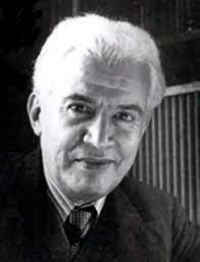
Manuel María Ponce Cuéllar (8 December 1882 – 24 April 1948) was a Mexican composer active in the 20th century. His work as a composer, music educator and scholar of Mexican music connected the concert scene with a mostly forgotten tradition of popular song and Mexican folklore. Many of his compositions are strongly influenced by the harmonies and form of traditional songs.
Music theory

Music theory is the study of the practices and possibilities of music. The Oxford Companion to Music describes three interrelated uses of the term "music theory"
Georges Bizet

Georges Bizet (25 October 1838 – 3 June 1875) was a French composer and pianist of the Romantic era. He is best known for the opera Carmen.
Bizet was born at 26 rue de la Tour d'Auvergne in the 9th arrondissement of Paris in 1838. He was registered with the legal name Alexandre César Léopold Bizet, but he was baptised on 16 March 1840 with the first name Georges, and he was always known thereafter as Georges Bizet. His father Adolphe Armand Bizet (1810-86) was an amateur singer and composer, and his mother, Aimée Léopoldine Joséphine née Delsarte (1814-61), was the sister of the famous singing teacher François Delsarte.
He entered the Paris Conservatory of Music on 9 October 1848, a fortnight before his tenth birthday. His teachers there were Pierre Zimmermann (fugue and counterpoint; often assisted by his son-in-law Charles Gounod), Antoine François Marmontel (piano), François Benoist (organ) and, on Zimmermann's death, Fromental Halévy, whose daughter he himself later married. He won first prizes for organ and fugue in 1855 and completed his earliest compositions.
His first symphony, the Symphony in C, was written in November 1855, when he was seventeen, evidently as a student assignment. It was unknown to the world until 1933, when it was discovered in the archives of the Paris Conservatory library. Upon its first performance in 1935, it was immediately hailed as a junior masterwork and a welcome addition to the early Romantic period repertoire. The symphony bears a stylistic resemblance to the first symphony of Gounod, first played earlier in the same year, and which Bizet had arranged for two pianos although present-day listeners may discern a similarity to music of Franz Schubert, whose work was little known in France at the time the symphony was written.
In 1857, a setting of the one-act operetta Le docteur Miracle won him a share in a prize offered by Jacques Offenbach. He also won the music composition scholarship of the Prix de Rome, the conditions of which required him to study in Rome for three years. There, his talent developed as he wrote such works as the opera buffa Don Procopio (1858-59). There he also composed his only major sacred work, Te Deum (1858), which he submitted to the Prix Rodrigues competition, a contest for Prix de Rome winners only. Bizet failed to win the Prix Rodrigues, and the Te Deum score remained unpublished until 1971. He made two attempts to write another symphony in 1859, but destroyed the manuscripts in December of that year. Apart from this period in Rome, Bizet lived in the Paris area all his life.
Shortly after leaving Rome in July 1860, but while still touring in Italy, he had the idea of writing a symphony in which each of the four movements would be a musical evocation of a different Italian city – Rome, Venice, Florence and Naples. On hearing of his mother's serious illness he cut short his Italian travels and returned to Paris in September 1860; she died a year later. The Scherzo of the symphony was completed by November 1861, but it was not until 1866 that the first version of the whole symphony was written. He subjected it to a number of revisions through to 1871, but died before ever producing what he considered the definitive version. For this reason, the work is sometimes described as "unfinished", but this is an inaccurate description as it was fully scored. It was published in 1880 as the Roma Symphony.
Bizet was born at 26 rue de la Tour d'Auvergne in the 9th arrondissement of Paris in 1838. He was registered with the legal name Alexandre César Léopold Bizet, but he was baptised on 16 March 1840 with the first name Georges, and he was always known thereafter as Georges Bizet. His father Adolphe Armand Bizet (1810-86) was an amateur singer and composer, and his mother, Aimée Léopoldine Joséphine née Delsarte (1814-61), was the sister of the famous singing teacher François Delsarte.
He entered the Paris Conservatory of Music on 9 October 1848, a fortnight before his tenth birthday. His teachers there were Pierre Zimmermann (fugue and counterpoint; often assisted by his son-in-law Charles Gounod), Antoine François Marmontel (piano), François Benoist (organ) and, on Zimmermann's death, Fromental Halévy, whose daughter he himself later married. He won first prizes for organ and fugue in 1855 and completed his earliest compositions.
His first symphony, the Symphony in C, was written in November 1855, when he was seventeen, evidently as a student assignment. It was unknown to the world until 1933, when it was discovered in the archives of the Paris Conservatory library. Upon its first performance in 1935, it was immediately hailed as a junior masterwork and a welcome addition to the early Romantic period repertoire. The symphony bears a stylistic resemblance to the first symphony of Gounod, first played earlier in the same year, and which Bizet had arranged for two pianos although present-day listeners may discern a similarity to music of Franz Schubert, whose work was little known in France at the time the symphony was written.
In 1857, a setting of the one-act operetta Le docteur Miracle won him a share in a prize offered by Jacques Offenbach. He also won the music composition scholarship of the Prix de Rome, the conditions of which required him to study in Rome for three years. There, his talent developed as he wrote such works as the opera buffa Don Procopio (1858-59). There he also composed his only major sacred work, Te Deum (1858), which he submitted to the Prix Rodrigues competition, a contest for Prix de Rome winners only. Bizet failed to win the Prix Rodrigues, and the Te Deum score remained unpublished until 1971. He made two attempts to write another symphony in 1859, but destroyed the manuscripts in December of that year. Apart from this period in Rome, Bizet lived in the Paris area all his life.
Shortly after leaving Rome in July 1860, but while still touring in Italy, he had the idea of writing a symphony in which each of the four movements would be a musical evocation of a different Italian city – Rome, Venice, Florence and Naples. On hearing of his mother's serious illness he cut short his Italian travels and returned to Paris in September 1860; she died a year later. The Scherzo of the symphony was completed by November 1861, but it was not until 1866 that the first version of the whole symphony was written. He subjected it to a number of revisions through to 1871, but died before ever producing what he considered the definitive version. For this reason, the work is sometimes described as "unfinished", but this is an inaccurate description as it was fully scored. It was published in 1880 as the Roma Symphony.
Koji Kondo

Koji Kondo (近藤浩治 Kondō Kōji?, born August 13, 1960) is a Japanese video game composer and sound director who has been employed at Nintendo since 1984. He is best known for scoring numerous titles in the Mario and The Legend of Zelda series.
Bill Evans

William John Evans, known as Bill Evans (August 16, 1929 – September 15, 1980) was an American jazz pianist. His use of impressionist harmony, inventive interpretation of traditional jazz repertoire, and trademark rhythmically independent, "singing" melodic lines influenced a generation of pianists, including Chick Corea, Herbie Hancock, John Taylor, Steve Kuhn, Don Friedman, Denny Zeitlin, Bobo Stenson and Keith Jarrett, as well as guitarists Lenny Breau and Pat Metheny. The music of Bill Evans continues to inspire younger pianists like Marcin Wasilewski, Fred Hersch, Ray Reach, Bill Charlap, Lyle Mays, Eliane Elias and arguably Brad Mehldau, early in his career.
Evans is an inductee of the Down Beat Jazz Hall of Fame.
Evans is an inductee of the Down Beat Jazz Hall of Fame.
Sally DeFord

Sally DeFord Musical artist Born: 1959 (age 60 years), Eugene, Oregon, United States
Record labels: Defordmusic, Defordmusic.com, Sally DeFord Music, Sally DeFord
Genres: Alt Contemporary Christian, Christian/Gospel
Albums: He Is My Song, MORE
Record labels: Defordmusic, Defordmusic.com, Sally DeFord Music, Sally DeFord
Genres: Alt Contemporary Christian, Christian/Gospel
Albums: He Is My Song, MORE
Johann Sebastian Bach

Johann Sebastian Bach (31 March 1685 – 28 July 1750) was a German composer and musician of the Baroque period. He is known for instrumental compositions such as the Art of Fugue, the Brandenburg Concertos, and the Goldberg Variations, and for vocal music such as the St Matthew Passion and the Mass in B minor. Since the 19th-century Bach Revival he has been generally regarded as one of the greatest composers of the Western art musical canon.
Traditional

Straylight Run
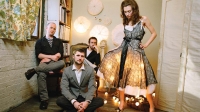
Straylight Run is an emo band based in Baldwin, Nassau County, New York. The band released two albums, Straylight Run and The Needles the Space, as well as three EPs, Prepare to Be Wrong, About Time, and Un Mas Dos.
Wade Rackley
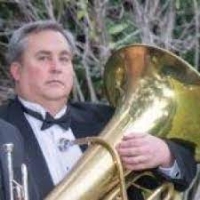
Wade Rackley has been the Principal Tubist with the Mississippi Symphony Orchestra and the MSO Brass Quintet since 1993. He is the Adjunct Instructor of ...
Pink Floyd
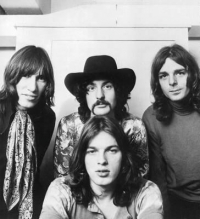
Pink Floyd are an English rock band from Cambridge. The band initially earned recognition for their psychedelic and space rock music, and, as they evolved, for their progressive rock music. Pink Floyd are known for philosophical lyrics, sonic experimentation, innovative album cover art, and elaborate live shows. One of rock music's most successful acts, the group have sold over 200 million albums worldwide including 74.5 million albums in the United States alone. Pink Floyd have influenced progressive rock artists of the 1970s such as Genesis and Yes; and contemporary artists such as Nine Inch Nails and Dream Theater.
Pink Floyd had moderate mainstream success and were one of the most popular bands in the London underground music scene in the late 1960s as a psychedelic band led by Syd Barrett. However, Barrett's erratic behaviour eventually forced his colleagues to replace him with guitarist and singer David Gilmour. After Barrett's departure, singer and bass player Roger Waters gradually became the dominant and driving force in the group by the late-1970s, until his eventual departure from the group in 1985. The band recorded several albums, achieving worldwide success with The Dark Side of the Moon (1973), Wish You Were Here (1975), Animals (1977), and The Wall (1979).
In 1985, Waters declared Pink Floyd "a spent force", but the remaining members, led by Gilmour, continued recording and touring under the name Pink Floyd. Waters sued them for the name and eventually they reached a settlement out of court, under which Gilmour, Mason and Wright would continue as Pink Floyd. They again enjoyed worldwide success with A Momentary Lapse of Reason (1987) and The Division Bell (1994). Waters performed with the band for the first time in 24 years on 2 July 2005 at the London Live 8 concert.
Pink Floyd had moderate mainstream success and were one of the most popular bands in the London underground music scene in the late 1960s as a psychedelic band led by Syd Barrett. However, Barrett's erratic behaviour eventually forced his colleagues to replace him with guitarist and singer David Gilmour. After Barrett's departure, singer and bass player Roger Waters gradually became the dominant and driving force in the group by the late-1970s, until his eventual departure from the group in 1985. The band recorded several albums, achieving worldwide success with The Dark Side of the Moon (1973), Wish You Were Here (1975), Animals (1977), and The Wall (1979).
In 1985, Waters declared Pink Floyd "a spent force", but the remaining members, led by Gilmour, continued recording and touring under the name Pink Floyd. Waters sued them for the name and eventually they reached a settlement out of court, under which Gilmour, Mason and Wright would continue as Pink Floyd. They again enjoyed worldwide success with A Momentary Lapse of Reason (1987) and The Division Bell (1994). Waters performed with the band for the first time in 24 years on 2 July 2005 at the London Live 8 concert.
Hans Zimmer

Hans Florian Zimmer (born September 12, 1957) is a German film score composer and music producer. He has composed music for over 100 films, including Hollywood blockbusters such as the Pirates of the Caribbean series, Gladiator, The Lion King, The Da Vinci Code and The Dark Knight.
Zimmer spent the early part of his career in the United Kingdom before moving to the United States. He is the head of the film music division at DreamWorks studios, and works with other composers through the company which he founded, Remote Control Productions. His work is notable for integrating electronic music sounds with traditional orchestral arrangements.
Zimmer spent the early part of his career in the United Kingdom before moving to the United States. He is the head of the film music division at DreamWorks studios, and works with other composers through the company which he founded, Remote Control Productions. His work is notable for integrating electronic music sounds with traditional orchestral arrangements.
Sting
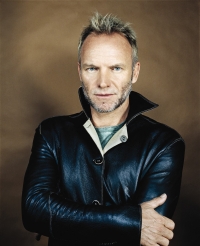
Gordon Matthew Thomas Sumner, CBE (born October 2, 1951), better known by his stage name Sting, is a three time Academy Award-nominated and multiple Grammy-winning English musician from Wallsend in North Tyneside. Prior to starting his solo career, he was the principal songwriter, lead singer and bassist of the rock band The Police. As a solo musician and member of The Police, Sting has sold over 100 million records, and received over sixteen Grammy Awards for his work, receiving his first Grammy for Best Rock Instrumental Performance in 1981, and receiving an Oscar nomination for best song.
Sting has stated that he gained his nickname while with the Phoenix Jazzmen. He once performed wearing a black and yellow sweater with hooped stripes that bandleader Gordon Solomon had noted made him look like a bumblebee; thus Sumner became "Sting". He uses Sting almost exclusively, except on official documents. In a press conference filmed in the movie Bring on the Night, he jokingly stated when referred to by a journalist as Gordon, "My children call me Sting, my mother calls me Sting, who is this Gordon character?"
Sting has stated that he gained his nickname while with the Phoenix Jazzmen. He once performed wearing a black and yellow sweater with hooped stripes that bandleader Gordon Solomon had noted made him look like a bumblebee; thus Sumner became "Sting". He uses Sting almost exclusively, except on official documents. In a press conference filmed in the movie Bring on the Night, he jokingly stated when referred to by a journalist as Gordon, "My children call me Sting, my mother calls me Sting, who is this Gordon character?"
Carlos Gardel

Carlos Gardel (11 December 1890 – 24 June 1935) was a singer, songwriter and actor, and is perhaps the most prominent figure in the history of tango. The unerring musicality of Gardel's baritone voice and the dramatic phrasing of his lyrics made miniature masterpieces of his hundreds of three-minute tango recordings. Together with lyricist and long-time collaborator Alfredo Le Pera, Gardel wrote several classic tangos, most notably "Mi Buenos Aires querido", "Por una cabeza" and "El día que me quieras".
Gardel died in an airplane crash at the height of his career, becoming an archetypal tragic hero mourned throughout Latin America. For many, Gardel embodies the soul of the tango style. He is commonly referred to as "Carlitos", "El Zorzal" (The Song Thrush), "The King of Tango", "El Mago" (The Magician) and "El Mudo" (The Mute).
Gardel died in an airplane crash at the height of his career, becoming an archetypal tragic hero mourned throughout Latin America. For many, Gardel embodies the soul of the tango style. He is commonly referred to as "Carlitos", "El Zorzal" (The Song Thrush), "The King of Tango", "El Mago" (The Magician) and "El Mudo" (The Mute).
Grieg

Edvard Hagerup Grieg (/ɡriːɡ/ GREEG, Norwegian: ; 15 June 1843 – 4 September 1907) was a Norwegian composer and pianist. He is widely considered one of the leading Romantic era composers, and his music is part of the standard classical repertoire worldwide. His use and development of Norwegian folk music in his own compositions brought the music of Norway to international consciousness, as well as helping to develop a national identity, much as Jean Sibelius and Bedřich Smetana did in Finland and Bohemia, respectively.
Grieg is the most celebrated person from the city of Bergen, with numerous statues depicting his image, and many cultural entities named after him: the city's largest concert building (Grieg Hall), its most advanced music school (Grieg Academy) and its professional choir (Edvard Grieg Kor). The Edvard Grieg Museum at Grieg's former home, Troldhaugen, is dedicated to his legacy.
Grieg is the most celebrated person from the city of Bergen, with numerous statues depicting his image, and many cultural entities named after him: the city's largest concert building (Grieg Hall), its most advanced music school (Grieg Academy) and its professional choir (Edvard Grieg Kor). The Edvard Grieg Museum at Grieg's former home, Troldhaugen, is dedicated to his legacy.
Grease
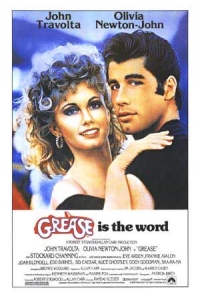
Grease is a film directed by Randal Kleiser and based on Jim Jacobs' and Warren Casey's musical, Grease. The film stars John Travolta, Olivia Newton-John, Stockard Channing, Jeff Conaway, and Eve Arden. It was originally released to theatres on June 16, 1978. It was filmed at Venice High School in Venice, California. It was released in the U.S. on VHS during the 1980s; the latest VHS release was June 23, 1998 as 20th Anniversary Edition following a theatrical re-release that March. On September 24, 2002, it was released on DVD for the first time. On September 19, 2006, it was re-released on DVD as the Rockin' Rydell Edition, which includes a black Rydell High T-Bird jacket cover or the Target-exclusive Pink Ladies cover.
Stephen Pearson
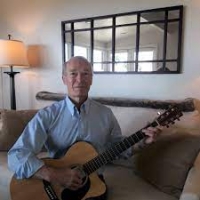
Although my training and career was as a lawyer, my personal worlds were in the mountains and in song. From 1995-2005, I wrote music and lyrics for the 150 Psalms (as well as related devotional music), and established a web site, www.psalmistry.com, to share the work with fellow praise and worship teams. I am now retired from my profession, but not the mountains or music. The changes in music technology continue to add exciting avenues of expression and creation.
M2M
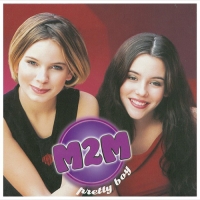
M2M were a Norwegian pop duo comprising Marit Larsen and Marion Raven. Larsen and Raven had been friends since the age of five, and formed a music duo when they were eight. They released a children's album in 1996 when Larsen was 12 and Raven was 11, under the name "Marit & Marion".
Paul Baloche
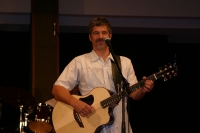
Paul Baloche (born on June 4, 1962) is an American Christian music artist, worship leader, and singer-songwriter. A native of Maple Shade, New Jersey, Baloche is currently the worship pastor at Community Christian Fellowship in Lindale, Texas. Baloche composes on piano and acoustic guitar, favoring guitar when leading worship. His wife, Rita Baloche, is also a Christian songwriter. Baloche is one of the writers for Compassionart, a charity founded by Martin Smith from Delirious?.
Several Christian artists, such as Michael W. Smith and SONICFLOOd, have recorded Baloche's songs. Many of his songs are among the most performed songs in services according to CCLI, a company that handles copyright licensing of Christian songs and other resource materials for use in churches. Among them are "Open the Eyes of My Heart" (ranked number 2) and "Above All" (ranked number 22), cowritten with Lenny Leblanc. "Above All" was nominated for Song of the Year in both the 2002 and 2003 Dove Awards, and in 2002, Michael W. Smith's recording of that song won Inspirational Recorded Song of the Year. Baloche was also nominated for Songwriter of the Year in 2002. In 2009, Baloche won a Dove Award for Inspiration Recorded Song of the Year as coauthor of "A New Hallelujah" with Michael W. and Debbie Smith.
Baloche uses his position as a recording artist to provide resources for churches. His catalog of six albums is focused on providing worship music for the listener to worship along with, and for churches to use in their own services. His albums are released by Hosanna! Music, a division of Integrity Music. Through Integrity, Baloche has also written a book, God Songs, and released instructional DVDs that cover a variety of issues central to contemporary worship, such as music styles, music theory, creating flow in worship, and guitar techniques (including his methods on open chord voicings). In addition to his material output, Baloche participates in several seminars for worship leaders and musicians throughout North America and Asia.
The 2006 release A Greater Song is a live recording featuring songs by Baloche, some cowritten with worship artists including Matt Redman ("A Greater Song") and former Integrity Music president Don Moen ("Thank You Lord").
The 2009 release Glorious featured the single "Just To Be With You," which Baloche explained "is simply about intimacy with God."
Several Christian artists, such as Michael W. Smith and SONICFLOOd, have recorded Baloche's songs. Many of his songs are among the most performed songs in services according to CCLI, a company that handles copyright licensing of Christian songs and other resource materials for use in churches. Among them are "Open the Eyes of My Heart" (ranked number 2) and "Above All" (ranked number 22), cowritten with Lenny Leblanc. "Above All" was nominated for Song of the Year in both the 2002 and 2003 Dove Awards, and in 2002, Michael W. Smith's recording of that song won Inspirational Recorded Song of the Year. Baloche was also nominated for Songwriter of the Year in 2002. In 2009, Baloche won a Dove Award for Inspiration Recorded Song of the Year as coauthor of "A New Hallelujah" with Michael W. and Debbie Smith.
Baloche uses his position as a recording artist to provide resources for churches. His catalog of six albums is focused on providing worship music for the listener to worship along with, and for churches to use in their own services. His albums are released by Hosanna! Music, a division of Integrity Music. Through Integrity, Baloche has also written a book, God Songs, and released instructional DVDs that cover a variety of issues central to contemporary worship, such as music styles, music theory, creating flow in worship, and guitar techniques (including his methods on open chord voicings). In addition to his material output, Baloche participates in several seminars for worship leaders and musicians throughout North America and Asia.
The 2006 release A Greater Song is a live recording featuring songs by Baloche, some cowritten with worship artists including Matt Redman ("A Greater Song") and former Integrity Music president Don Moen ("Thank You Lord").
The 2009 release Glorious featured the single "Just To Be With You," which Baloche explained "is simply about intimacy with God."
Disney Pixar
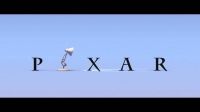
Pixar Computer animation company DescriptionPixar Animation Studios is an American computer animation studio based in Emeryville, California, a subsidiary of Walt Disney Studios. Wikipedia Founded: February 3, 1986 Parent organization: Walt Disney Studios (2006—present) Headquarters: Emeryville, California, United States Acquisition date: 2006 Founders: Steve Jobs, Edwin Catmull, Alvy Ray Smith Key people: Jim Morris (President), Pete Docter (Chief creative officer)
Jean Sibelius

Jean Sibelius ( pronunciation (help·info)) (8 December 1865 – 20 September 1957) was a Finnish composer of the later Romantic period whose music played an important role in the formation of the Finnish national identity. His mastery of the orchestra has been described as "prodigious."
The core of Sibelius's oeuvre is his set of seven symphonies. Like Beethoven, Sibelius used each successive work to further develop his own personal compositional style. His works continue to be performed frequently in the concert hall and are often recorded.
In addition to the symphonies, Sibelius's best-known compositions include Finlandia, the Karelia Suite, Valse triste, the Violin Concerto in D minor and The Swan of Tuonela (one of the four movements of the Lemminkäinen Suite). Other works include pieces inspired by the Finnish national epic, the Kalevala; over 100 songs for voice and piano; incidental music for 13 plays; the opera Jungfrun i tornet (The Maiden in the Tower); chamber music; piano music; Masonic ritual music; and 21 separate publications of choral music.
The core of Sibelius's oeuvre is his set of seven symphonies. Like Beethoven, Sibelius used each successive work to further develop his own personal compositional style. His works continue to be performed frequently in the concert hall and are often recorded.
In addition to the symphonies, Sibelius's best-known compositions include Finlandia, the Karelia Suite, Valse triste, the Violin Concerto in D minor and The Swan of Tuonela (one of the four movements of the Lemminkäinen Suite). Other works include pieces inspired by the Finnish national epic, the Kalevala; over 100 songs for voice and piano; incidental music for 13 plays; the opera Jungfrun i tornet (The Maiden in the Tower); chamber music; piano music; Masonic ritual music; and 21 separate publications of choral music.
Justin Bieber

Justin Bieber (pronounced /ˈbiːbər/, BEE-bər; born March 1, 1994) is a Canadian pop/R&B singer. His performances on YouTube were seen by Scooter Braun, who later became his manager. Braun arranged for him to meet with Usher in Atlanta, Georgia, and Bieber was soon signed to Raymond Braun Media Group (RBMG), a joint venture between Braun and Usher, and then to a recording contract with Island Records offered by L.A. Reid.
His debut single, "One Time", was released worldwide during 2009, and charted within the top thirty in over ten countries. It was followed by his debut release, My World on November 17, 2009, which was certified platinum in the United States, which at the time gave Bieber the highest debut by a new artist in the year, and made Bieber the first artist to have seven songs from a debut album chart on Billboard's Hot 100 chart. His first full studio release, My World 2.0 was released on March 23, 2010, debuting at number one and within the top ten of several countries. It was preceded by the international hit song, "Baby".
His debut single, "One Time", was released worldwide during 2009, and charted within the top thirty in over ten countries. It was followed by his debut release, My World on November 17, 2009, which was certified platinum in the United States, which at the time gave Bieber the highest debut by a new artist in the year, and made Bieber the first artist to have seven songs from a debut album chart on Billboard's Hot 100 chart. His first full studio release, My World 2.0 was released on March 23, 2010, debuting at number one and within the top ten of several countries. It was preceded by the international hit song, "Baby".
Mozart

Wolfgang Amadeus Mozart, full name Johann Chrysostom Wolfgang Amadeus Mozart (27 January 1756 â 5 December 1791) was a prolific and influential composer of the Classical era. His over 600 compositions include works widely acknowledged as pinnacles of symphonic, concertante, chamber, piano, operatic, and choral music. Mozart is among the most enduringly popular of classical composers, and many of his works are part of the standard concert repertoire.
Mozart's music, like Haydn's, stands as an archetypal example of the Classical style. His works spanned the period during which that style transformed from one exemplified by the style galant to one that began to incorporate some of the contrapuntal complexities of the late Baroque, complexities against which the galant style had been a reaction. Mozart's own stylistic development closely paralleled the development of the classical style as a whole. In addition, he was a versatile composer and wrote in almost every major genre, including symphony, opera, the solo concerto, chamber music including string quartet and string quintet, and the piano sonata. While none of these genres were new, the piano concerto was almost single-handedly developed and popularized by Mozart. He also wrote a great deal of religious music, including masses; and he composed many dances, divertimenti, serenades, and other forms of light entertainment.
The central traits of the classical style can be identified in Mozart's music. Clarity, balance, and transparency are hallmarks of his work.
Mozart's music, like Haydn's, stands as an archetypal example of the Classical style. His works spanned the period during which that style transformed from one exemplified by the style galant to one that began to incorporate some of the contrapuntal complexities of the late Baroque, complexities against which the galant style had been a reaction. Mozart's own stylistic development closely paralleled the development of the classical style as a whole. In addition, he was a versatile composer and wrote in almost every major genre, including symphony, opera, the solo concerto, chamber music including string quartet and string quintet, and the piano sonata. While none of these genres were new, the piano concerto was almost single-handedly developed and popularized by Mozart. He also wrote a great deal of religious music, including masses; and he composed many dances, divertimenti, serenades, and other forms of light entertainment.
The central traits of the classical style can be identified in Mozart's music. Clarity, balance, and transparency are hallmarks of his work.
Stephen Sondheim

Stephen Joshua Sondheim (born March 22, 1930) is an American composer and lyricist for stage and film. He is the winner of an Academy Award, multiple Tony Awards (nine, more than any other composer) including the Special Tony Award for Lifetime Achievement in the Theatre (received 2008), multiple Grammy Awards, and a Pulitzer Prize. He has been described as "the greatest and perhaps best-known artist in the American musical theatre." His most famous scores include (as composer/lyricist) A Funny Thing Happened on the Way to the Forum, Company, Follies, A Little Night Music, Sweeney Todd, Sunday in the Park with George, Into the Woods, and Assassins, as well as the lyrics for West Side Story and Gypsy. He was president of the Dramatists Guild from 1973 to 1981.
Suzanne Ciani

Suzanne Ciani (/tʃiːˈɑːniː/; born June 4, 1946) is an American musician, sound designer, composer, and record label executive who found early success in the 1970s with her electronic music and sound effects for films and television commercials. Her career has included works with quadraphonic sound. She has been nominated for a Grammy Award for Best New Age Album five times. Her success with electronic music has her dubbed "Diva of the Diode" and "America's first female synth hero".
Dan Schutte
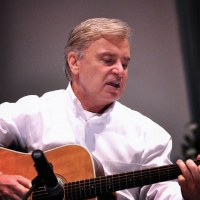
Daniel Laurent Schutte is an American composer of Catholic liturgical music and a contemporary Christian songwriter best known for composing the hymn "Here I Am, Lord" (1981, also known as "I, the Lord of Sea and Sky") and over 150 popular hymns and Mass settings.
Niki Reiser

Niki Reiser (born 12 May 1958) is a Swiss film score composer and flautist. He is considered one of the most outstanding film composers of the German-speaking countries, winning the German Film Award five times. His debut was in 1986 the score for the film Du mich auch, directed by Dani Levy, for whom he has composed all further scores. He had his breakthrough with the music for the film Beyond Silence, directed by Caroline Link in 1996.
Rosana Arbelo

Rosana Arbelo, is a Spanish singer and composer. In the Spanish-speaking world, she is known professionally as simply Rosana. She was born on the island of Lanzarote in the Canary Islands, where she was raised. She was the youngest of a family of eight children.
Isaac Albeniz

Isaac Albéniz i Pascual (Spanish pronunciation: ) (May 29, 1860 – May 18, 1909) was a Spanish pianist and composer best known for his piano works based on folk music.
Albéniz’ Suite Española Op.47 is comprised mainly of pieces written in 1886, and grouped together in 1887 in honor of the Queen of Spain. Like many of Albéniz' piano pieces, these works are miniature tone pictures of different geographical regions and musical idioms of Spain. The eight original titles are Granada, Cataluna, Sevilla, Cadiz, Asturias, Aragon, Castilla and Cuba but only the first three titles and Cuba appeared in the original collection. The other pieces were published in later collections, often with different titles. The publisher Hofmeister published all eight titles of Suite Espanola in 1911 after Albéniz’ death, appropriating other pieces for the other four titles so those pieces do not always accurately reflect the geographic designation of the titles, most obviously in the case of Asturias (Leyenda) whose Andalusian flamenco rhythms bear little resemblance to the music of the northern province Asturias. The opus number 47 assigned by Hofmeister has no relation to any chronological order in Albéniz’ oeuvre, in which opus numbers were randomly given by publishers or by Albéniz himself, with some pieces appearing in more than one collection.
Albéniz’ Suite Española Op.47 is comprised mainly of pieces written in 1886, and grouped together in 1887 in honor of the Queen of Spain. Like many of Albéniz' piano pieces, these works are miniature tone pictures of different geographical regions and musical idioms of Spain. The eight original titles are Granada, Cataluna, Sevilla, Cadiz, Asturias, Aragon, Castilla and Cuba but only the first three titles and Cuba appeared in the original collection. The other pieces were published in later collections, often with different titles. The publisher Hofmeister published all eight titles of Suite Espanola in 1911 after Albéniz’ death, appropriating other pieces for the other four titles so those pieces do not always accurately reflect the geographic designation of the titles, most obviously in the case of Asturias (Leyenda) whose Andalusian flamenco rhythms bear little resemblance to the music of the northern province Asturias. The opus number 47 assigned by Hofmeister has no relation to any chronological order in Albéniz’ oeuvre, in which opus numbers were randomly given by publishers or by Albéniz himself, with some pieces appearing in more than one collection.
Aaron Copland
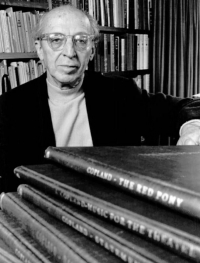
Aaron Copland (/ˈkoʊplənd/, KOHP-lənd; November 14, 1900 – December 2, 1990) was an American composer, composition teacher, writer, and later a conductor of his own and other American music. Copland was referred to by his peers and critics as "the Dean of American Composers". The open, slowly changing harmonies in much of his music are typical of what many people consider to be the sound of American music, evoking the vast American landscape and pioneer spirit.
Trinh Nam Son
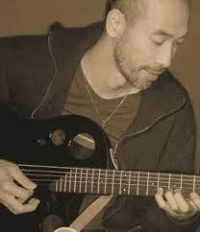
Trinh Nam Son is an outstanding Vietnamese singer-composer in the Vietnamese community. ... During his school years, he studied composition, orchestration, and conducting with famous film composers such as Henry Mancini, Bill Conti, Alan Ferguson,Dick Grove, Roger Steinman, Jack Feiberman, and David Angel.
George R. Poulton
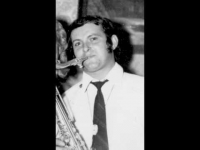
George Rodway Poulton (bapt. 16 October 1828 – 1867) was an English musician and composer.He was born in Cricklade, near Cirencester, Wiltshire, England in 1828 to Charles Poulton and Hannah Rodway Poulton. He was baptised in St. Mary's Church and was raised in the town until the age of seven when his parents, Charles and Hannah Poulton, emigrated to Lansingburgh, New York. George Poulton's descendants still have connections with Cricklade.
George Kirbye
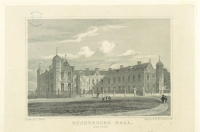
George Kirbye (c. 1565 – buried 6 October 1634) was an English composer of the late Tudor period and early Jacobean era. He was one of the members of the English Madrigal School, but also composed sacred music.Little is known of the details of his life, though some of his contacts can be inferred. He worked at Rushbrooke Hall near Bury St Edmunds, evidently as a tutor to the daughters of Sir Robert Jermyn. In 1598 he married Anne Saxye, afterwards moving to Bury St Edmunds. Around this time he probably made the acquaintance of John Wilbye, a much more famous madrigalist, who lived and worked only a few miles away, and whose style he sometimes approaches. In 1626 his wife died, and he is known to have been a churchwarden during the next several years until his death.
Leonard Bernstein
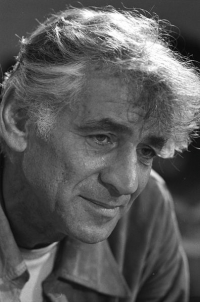
Leonard Bernstein (pronounced /ˈbɜrn.staɪn/, us dict: bûrn′·stīn; August 25, 1918 – October 14, 1990) was an American conductor, composer, author, music lecturer and pianist. He was among the first conductors born and educated in the United States of America to receive worldwide acclaim. He was probably best known to the public as the longtime music director of the New York Philharmonic, for conducting concerts by many of the world's leading orchestras, and for writing the music for West Side Story, Candide, Wonderful Town, and On the Town. Bernstein was the first classical music conductor to make numerous television appearances, perhaps more than any other classical conductor, all between 1954 and 1989. He had a formidable piano technique and as a composer wrote many types of music from Broadway shows to symphonies. According to the New York Times, he was "one of the most prodigally talented and successful musicians in American history."
Keith Getty
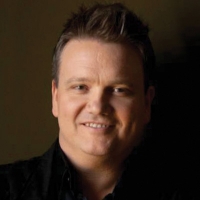
Julian Keith Getty OBE is a Northern Irish Christian singer and songwriter, best known for writing the modern hymn "In Christ Alone" in 2001 with veteran English songwriter and worship leader Stuart Townend.
Joey Enriquez

Joy Charity Enriquez is an American singer and actress who has appeared on the television series 7th Heaven and also starred in films such as Chasing Papi and Lady and the Tramp II: Scamp's Adventure. Enriquez was also a background singer on the single "When You Believe", a duet by Whitney Houston and Mariah Carey.
Hairspray
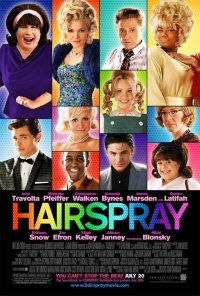
Hairspray is a 2007 musical film produced by Zadan/Meron Productions and distributed by New Line Cinema. It was released in the United States, Canada, and the United Kingdom on July 20, 2007. The film is an adaptation of the Tony Award-winning 2002 Broadway musical of the same name, and a remake of John Waters' 1988 comedy film of the same name. Set in 1962 Baltimore, Maryland, the film follows a "pleasantly plump" teenager named Tracy Turnblad as she simultaneously pursues stardom as a dancer on a local TV show and rallies against racial segregation.
Adapted from both Waters's 1988 script and Thomas Meehan and Mark O'Donnell's book for the stage musical by screenwriter Leslie Dixon, the 2007 film version of Hairspray is directed and choreographed by Adam Shankman. Hairspray stars John Travolta, Michelle Pfeiffer, Christopher Walken, Amanda Bynes, James Marsden, Queen Latifah, Brittany Snow, Zac Efron, Elijah Kelley, Allison Janney, and introduces newcomer Nikki Blonsky as Tracy Turnblad. Hairspray features songs from the Broadway musical written by Marc Shaiman and Scott Wittman, as well as four new Shaiman/Wittman compositions not present in the original Broadway version.
Opening to mostly positive reviews, Hairspray met with financial success, breaking the record for biggest sales at opening weekend for a movie musical, which the film held until July 2008 when it was surpassed by Mamma Mia!. Hairspray went on to become the fourth highest grossing musical film in U.S. cinema history, behind the film adaptations of Grease, Chicago, and Mamma Mia!. Available in a variety of formats, Hairspray's Region 1 home video release took place on November 20, 2007. The USA Network has purchased the broadcast rights to Hairspray and is scheduled to debut the film on cable television in February 2010.
Adam Shankman and John Waters are currently working on a sequel to the film.
Adapted from both Waters's 1988 script and Thomas Meehan and Mark O'Donnell's book for the stage musical by screenwriter Leslie Dixon, the 2007 film version of Hairspray is directed and choreographed by Adam Shankman. Hairspray stars John Travolta, Michelle Pfeiffer, Christopher Walken, Amanda Bynes, James Marsden, Queen Latifah, Brittany Snow, Zac Efron, Elijah Kelley, Allison Janney, and introduces newcomer Nikki Blonsky as Tracy Turnblad. Hairspray features songs from the Broadway musical written by Marc Shaiman and Scott Wittman, as well as four new Shaiman/Wittman compositions not present in the original Broadway version.
Opening to mostly positive reviews, Hairspray met with financial success, breaking the record for biggest sales at opening weekend for a movie musical, which the film held until July 2008 when it was surpassed by Mamma Mia!. Hairspray went on to become the fourth highest grossing musical film in U.S. cinema history, behind the film adaptations of Grease, Chicago, and Mamma Mia!. Available in a variety of formats, Hairspray's Region 1 home video release took place on November 20, 2007. The USA Network has purchased the broadcast rights to Hairspray and is scheduled to debut the film on cable television in February 2010.
Adam Shankman and John Waters are currently working on a sequel to the film.
Metallica

Metallica is an American heavy metal band that formed in 1981 in Los Angeles, California. Founded when drummer Lars Ulrich posted an advertisement in a Los Angeles newspaper, Metallica's original line-up consisted of Ulrich, rhythm guitarist and vocalist James Hetfield, lead guitarist Dave Mustaine, and bassist Ron McGovney. These last two were later replaced from the band, in favor of Kirk Hammett and Cliff Burton, respectively. In September 1986, Metallica's tour bus skidded out of control and flipped, which resulted in Burton being crushed under the bus and killed. Jason Newsted replaced him less than two months later. Newsted left the band in 2001 and was replaced by Robert Trujillo in 2003.
Metallica's early releases included fast tempos, instrumentals, and aggressive musicianship that placed them as one of the "Big Four" of the thrash metal subgenre alongside Slayer, Megadeth and Anthrax. The band earned a growing fan base in the underground music community, and some critics say the 1986 release Master of Puppets is one of the most influential and "heavy" thrash metal albums. The band achieved substantial commercial success with its self-titled 1991 album, which debuted at number one on the Billboard 200. Some critics and fans believed the band changed its musical direction to appeal to the mainstream audience. With the release of Load in 1996, Metallica distanced itself from earlier releases in what has been described as "an almost alternative rock approach", and the band faced accusations of "selling out".
In 2000, Metallica was among several artists who filed a lawsuit against Napster for sharing the band's copyright-protected material for free without the band members' consent. A settlement was reached, and Napster became a pay-to-use service. Despite reaching number one on the Billboard 200, the release of St. Anger in 2003 disappointed some critics and fans with the exclusion of guitar solos, and the "steel-sounding" snare drum. A film titled Some Kind of Monster documented the recording process of St. Anger.
Metallica's early releases included fast tempos, instrumentals, and aggressive musicianship that placed them as one of the "Big Four" of the thrash metal subgenre alongside Slayer, Megadeth and Anthrax. The band earned a growing fan base in the underground music community, and some critics say the 1986 release Master of Puppets is one of the most influential and "heavy" thrash metal albums. The band achieved substantial commercial success with its self-titled 1991 album, which debuted at number one on the Billboard 200. Some critics and fans believed the band changed its musical direction to appeal to the mainstream audience. With the release of Load in 1996, Metallica distanced itself from earlier releases in what has been described as "an almost alternative rock approach", and the band faced accusations of "selling out".
In 2000, Metallica was among several artists who filed a lawsuit against Napster for sharing the band's copyright-protected material for free without the band members' consent. A settlement was reached, and Napster became a pay-to-use service. Despite reaching number one on the Billboard 200, the release of St. Anger in 2003 disappointed some critics and fans with the exclusion of guitar solos, and the "steel-sounding" snare drum. A film titled Some Kind of Monster documented the recording process of St. Anger.
Neil Diamond
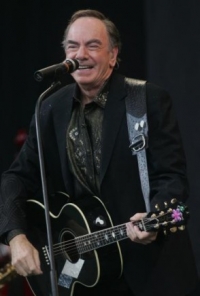
Neil Leslie Diamond (born January 24, 1941) is an American singer-songwriter and occasional actor.
Neil Diamond is one of pop music's most enduring and successful singer-songwriters. As a successful pop music performer, Diamond scored a number of hits worldwide in the 1960s, 1970s, and 1980s. Critic William Ruhlmann wrote of Diamond, "As of 2001, he claimed worldwide record sales of 115 million copies, and as of 2002 he was ranked third, behind only Elton John and Barbra Streisand, on the list of the most successful adult contemporary artists in the history of the Billboard chart." As of May 2005 Diamond had sold 120 million records worldwide, including 48 million records in the U.S.
Though his record sales declined somewhat after the 1980s, Diamond continues to tour successfully, and maintains a very loyal following. Diamond's songs have been recorded by a vast array of performers from many different musical genres.
Diamond was inducted into the Songwriters Hall of Fame in 1984, and in 2000 received the Sammy Cahn Lifetime Achievement Award.
Neil Diamond is one of pop music's most enduring and successful singer-songwriters. As a successful pop music performer, Diamond scored a number of hits worldwide in the 1960s, 1970s, and 1980s. Critic William Ruhlmann wrote of Diamond, "As of 2001, he claimed worldwide record sales of 115 million copies, and as of 2002 he was ranked third, behind only Elton John and Barbra Streisand, on the list of the most successful adult contemporary artists in the history of the Billboard chart." As of May 2005 Diamond had sold 120 million records worldwide, including 48 million records in the U.S.
Though his record sales declined somewhat after the 1980s, Diamond continues to tour successfully, and maintains a very loyal following. Diamond's songs have been recorded by a vast array of performers from many different musical genres.
Diamond was inducted into the Songwriters Hall of Fame in 1984, and in 2000 received the Sammy Cahn Lifetime Achievement Award.
Giuseppe Donizetti
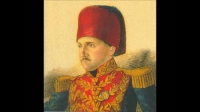
Giuseppe Donizetti. Italian musician. Turkey in the 19th century who introduced the first in Turkey and western music band which Mûsikâ-i Humayun's development is the person who provided the largest contribution
Handel

George Frideric Handel (Friday, 23 February 1685 - Saturday, 14 April 1759) was a German-born Baroque composer who is famous for his operas, oratorios and concerti grossi. Born as Georg Friedrich Handel in Halle, he spent most of his adult life in England, becoming a subject of the British crown on 22 January 1727. His most famous works are Messiah, an oratorio set to texts from the King James Bible; Water Music; and Music for the Royal Fireworks. Strongly influenced by the techniques of the great composers of the Italian Baroque and the English composer Henry Purcell, his music was known to many significant composers who came after him, including Haydn, Mozart, and Beethoven.
Handel's compositions include 42 operas; 29 oratorios; more than 120 cantatas, trios and duets; numerous arias; chamber music; a large number of ecumenical pieces; odes and serenatas; and sixteen organ concerti. His most famous work, the Messiah oratorio with its "Hallelujah" chorus, is among the most popular works in choral music and has become a centerpiece of the Christmas season. Also popular are the Opus 3 and 6 Concerti Grossi, as well as "The Cuckoo and the Nightingale", in which birds are heard calling during passages played in different keys representing the vocal ranges of two birds. Also notable are his sixteen keyboard suites, especially The Harmonious Blacksmith.
Handel introduced various previously uncommon musical instruments in his works: the viola d'amore and violetta marina (Orlando), the lute (Ode for St. Cecilia's Day), three trombones (Saul), clarinets or small high cornets (Tamerlano), theorbo, French horn (Water Music), lyrichord, double bassoon, viola da gamba, bell chimes, positive organ, and harp (Giulio Cesare, Alexander's Feast).
Handel's compositions include 42 operas; 29 oratorios; more than 120 cantatas, trios and duets; numerous arias; chamber music; a large number of ecumenical pieces; odes and serenatas; and sixteen organ concerti. His most famous work, the Messiah oratorio with its "Hallelujah" chorus, is among the most popular works in choral music and has become a centerpiece of the Christmas season. Also popular are the Opus 3 and 6 Concerti Grossi, as well as "The Cuckoo and the Nightingale", in which birds are heard calling during passages played in different keys representing the vocal ranges of two birds. Also notable are his sixteen keyboard suites, especially The Harmonious Blacksmith.
Handel introduced various previously uncommon musical instruments in his works: the viola d'amore and violetta marina (Orlando), the lute (Ode for St. Cecilia's Day), three trombones (Saul), clarinets or small high cornets (Tamerlano), theorbo, French horn (Water Music), lyrichord, double bassoon, viola da gamba, bell chimes, positive organ, and harp (Giulio Cesare, Alexander's Feast).
J. S. Bach
Johann Sebastian Bach (21 March 1685, O.S.31 March 1685, N.S. – 28 July 1750, N.S.) was a German composer, organist, harpsichordist, violist, and violinist whose sacred and secular works for choir, orchestra, and solo instruments drew together the strands of the Baroque period and brought it to its ultimate maturity. Although he did not introduce new forms, he enriched the prevailing German style with a robust contrapuntal technique, an unrivalled control of harmonic and motivic organisation, and the adaptation of rhythms, forms and textures from abroad, particularly from Italy and France.
Revered for their intellectual depth, technical command and artistic beauty, Bach's works include the Brandenburg Concertos, the Goldberg Variations, the Partitas, The Well-Tempered Clavier, the Mass in B minor, the St Matthew Passion, the St John Passion, the Magnificat, A Musical Offering, The Art of Fugue, the English and French Suites, the Sonatas and Partitas for solo violin, the Cello Suites, more than 200 surviving cantatas, and a similar number of organ works, including the famous Toccata and Fugue in D minor and Passacaglia and Fugue in C minor, as well as the Great Eighteen Chorale Preludes and Organ Mass.
Bach's abilities as an organist were highly respected throughout Europe during his lifetime, although he was not widely recognised as a great composer until a revival of interest and performances of his music in the first half of the 19th century. He is now generally regarded as one of the main composers of the Baroque style, and as one of the greatest composers of all time.
Revered for their intellectual depth, technical command and artistic beauty, Bach's works include the Brandenburg Concertos, the Goldberg Variations, the Partitas, The Well-Tempered Clavier, the Mass in B minor, the St Matthew Passion, the St John Passion, the Magnificat, A Musical Offering, The Art of Fugue, the English and French Suites, the Sonatas and Partitas for solo violin, the Cello Suites, more than 200 surviving cantatas, and a similar number of organ works, including the famous Toccata and Fugue in D minor and Passacaglia and Fugue in C minor, as well as the Great Eighteen Chorale Preludes and Organ Mass.
Bach's abilities as an organist were highly respected throughout Europe during his lifetime, although he was not widely recognised as a great composer until a revival of interest and performances of his music in the first half of the 19th century. He is now generally regarded as one of the main composers of the Baroque style, and as one of the greatest composers of all time.
Linda Elder

Linda Eder (/ˈɛdər/; born February 3, 1961) is an American singer and actress. She made her Broadway debut in the musical Jekyll & Hyde, originating the role of Lucy Harris, for which she was nominated for the Drama Desk Award. Eder has performed in concert halls across the country including Carnegie Hall and Radio City Musical Hall. She has released her 18th solo album in 2018.
Daniel L. Schulte
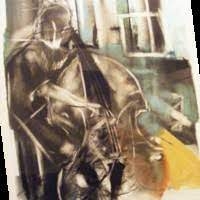
Dan Schulte's Orchestra jazz band, teachers assistant, private bass instructor.
Alicia Keys

Alicia J. Augello-Cook (born January 25, 1981), and has won numerous awards, including eleven Grammy Awards, seventeen Billboard Music Awards, three American Music Awards.
Her debut album Songs in A Minor was a worldwide success, selling nearly 11 millions albums, and received five Grammy Awards in 2002, with Alicia winning Best New Artist and also Song of the Year for "Fallin'".
Her debut album Songs in A Minor was a worldwide success, selling nearly 11 millions albums, and received five Grammy Awards in 2002, with Alicia winning Best New Artist and also Song of the Year for "Fallin'".
Rufus Reid
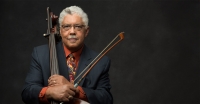
Rufus Reid (born February 10, 1944, in Atlanta, Georgia) is an American jazz bassist, educator, and composer.Reid was raised in Sacramento, California, where he played the trumpet through junior high and high school. Upon graduation from Sacramento High School, he entered the United States Air Force as a trumpet player. During that period he began to be seriously interested in the bass.
Led Zeppelin
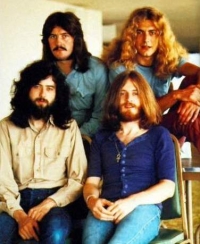
Led Zeppelin were an English rock band formed in 1968 by Jimmy Page (guitar), Robert Plant (vocals), John Paul Jones (bass guitar, keyboards) and John Bonham (drums). With their heavy, guitar-driven sound, Led Zeppelin are regarded as one of the first heavy metal bands. However, the band's individualistic style draws from many sources and transcends any one genre. Their rock-infused interpretation of the blues and folk genres also incorporated rockabilly, reggae, soul, funk, classical, Celtic, Indian, Arabic, pop, Latin and country. The band did not release the popular songs from their albums as singles in the UK, as they preferred to develop the concept of album-oriented rock.
Close to 30 years after disbanding following Bonham's death in 1980, the band continues to be held in high regard for their artistic achievements, commercial success and broad influence. The band have sold more than 300 million albums worldwide, including 111.5 million sales in the United States and they have had all of their original studio albums reach the U.S. Billboard Top 10, with six reaching the number one spot. Led Zeppelin are ranked No. 1 on VH1's 100 Greatest Artists of Hard Rock. Rolling Stone magazine has described Led Zeppelin as "the heaviest band of all time" and "the biggest band of the 70s".
On 10 December 2007 the surviving members of Led Zeppelin reunited (along with deceased drummer John Bonham's son Jason) for the Ahmet Ertegün Tribute Concert at The O2 in London.
Close to 30 years after disbanding following Bonham's death in 1980, the band continues to be held in high regard for their artistic achievements, commercial success and broad influence. The band have sold more than 300 million albums worldwide, including 111.5 million sales in the United States and they have had all of their original studio albums reach the U.S. Billboard Top 10, with six reaching the number one spot. Led Zeppelin are ranked No. 1 on VH1's 100 Greatest Artists of Hard Rock. Rolling Stone magazine has described Led Zeppelin as "the heaviest band of all time" and "the biggest band of the 70s".
On 10 December 2007 the surviving members of Led Zeppelin reunited (along with deceased drummer John Bonham's son Jason) for the Ahmet Ertegün Tribute Concert at The O2 in London.
Edward Elgar

Sir Edward William Elgar, 1st Baronet OM, GCVO (2 June 1857 – 23 February 1934) was an English composer, many of whose works have entered the British and international classical concert repertoire. Among his best-known compositions are orchestral works including the Enigma Variations, the Pomp and Circumstance Marches, concertos for violin and cello, and two symphonies. He also composed choral works, including The Dream of Gerontius, chamber music and songs. He was appointed Master of the King's Musick in 1924.
 Sheet Music Mobile is a site for those who wants to access popular sheet music easily,
letting them download the sheet music for free for trial purposes.
It's completely free to download and try the listed sheet music, but you have to delete the files after 24 hours of trial.
Don't forget, if you like the piece of music you have just learned playing,
treat the artist with respect, and go buy the original sheet music.
Sheet Music Mobile is a site for those who wants to access popular sheet music easily,
letting them download the sheet music for free for trial purposes.
It's completely free to download and try the listed sheet music, but you have to delete the files after 24 hours of trial.
Don't forget, if you like the piece of music you have just learned playing,
treat the artist with respect, and go buy the original sheet music.